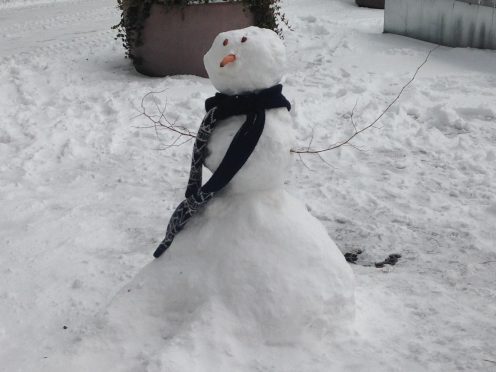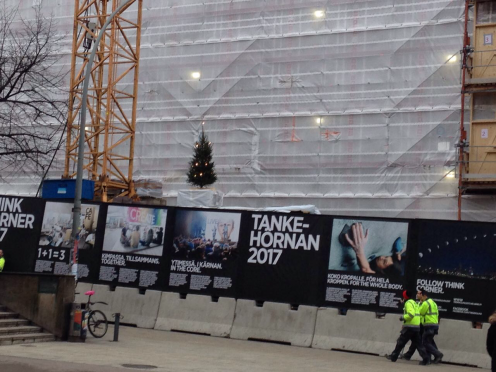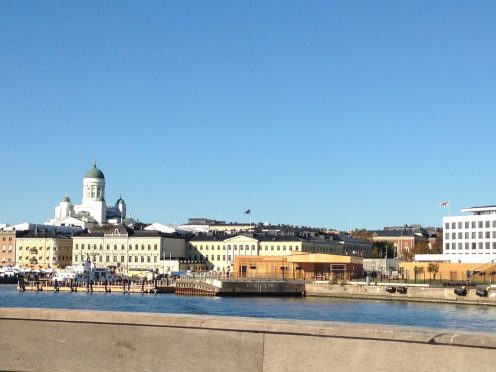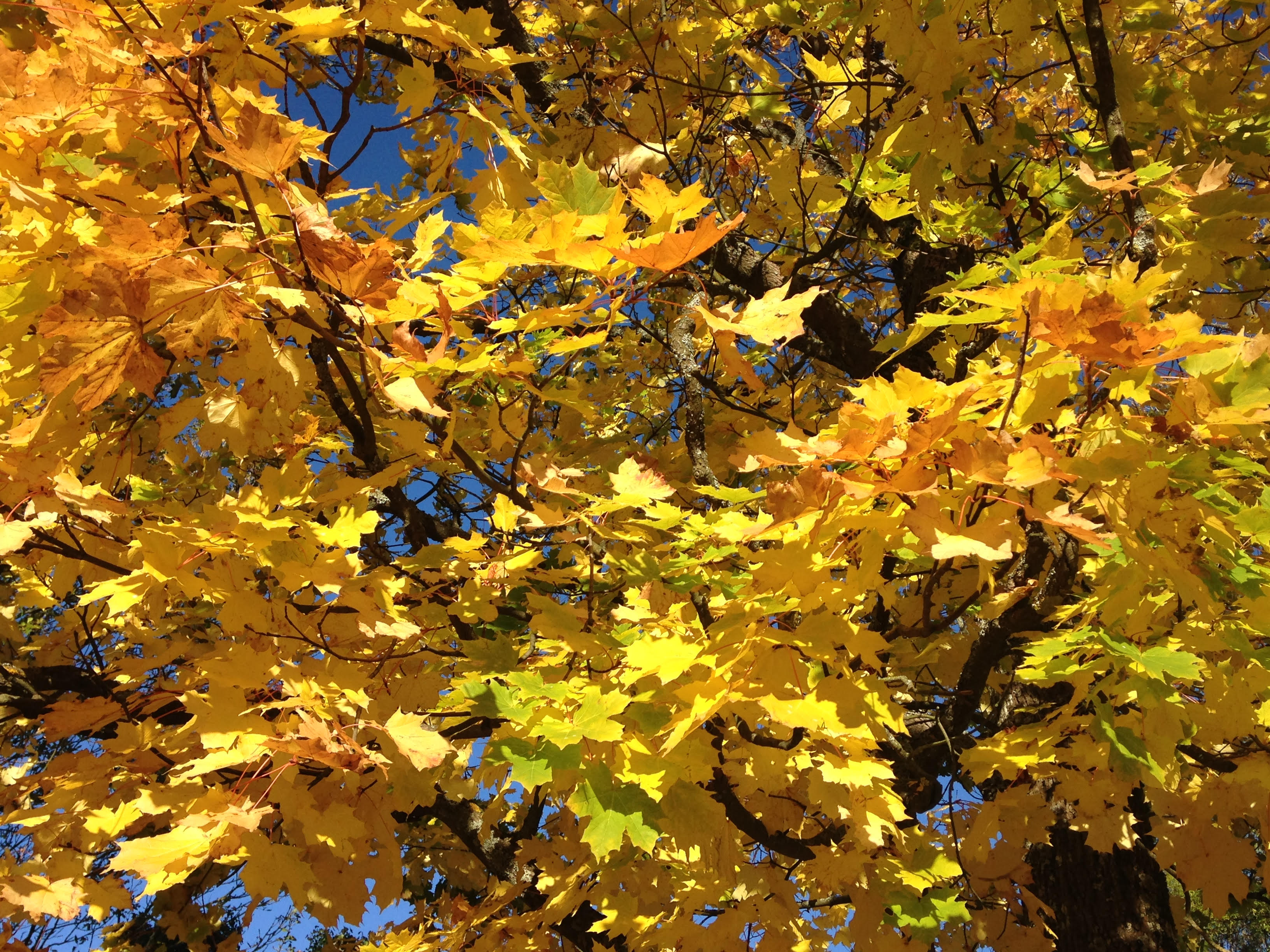Pre-departure:
The time between the confirmation of being selected for a semester exchange by the host university and the departure date seems long. It isn’t! Booking flights is the easiest part. The paper work that is required for everything else is plenty – from buying health and travel insurance, paying the accommodation deposit and, of course, applying for a visa.
The international exchange offices at the University of Helsinki, provides a wealth of information to ease the arrival for the exchange semester. For example, when applying for the visa online, tick the box that says register me in the Finnish Population Information System. That means it’s done – and this will save time and headaches of finding a magistrate to register yourself once in Helsinki! Ditto the bank documents. Although the letter confirming good conduct is not a standard bank document in South Africa, requesting this document from your bank manager will make it easier once in Helsinki (or another university in Finland).
Applying for the visa is done online with important documents like the university acceptance letter, proof of health and travel insurance, proof of finance (bank statements etc.) and copy of passport uploaded. Those documents must be presented at the Finnish Embassy – it means travelling up to Pretoria – but the process is hassle-free, quick and efficient.
Transferring foreign exchange (forex) for the accommodation deposit, and also for the student union membership fee, requires filling in plenty of forms at your bank and submitting proof why this forex transaction is needed. It takes patience, but once done it’s scratched off a rather long to do list.
It will be minus something temperatures at one stage during the exchange semester, but don’t bother buying clothes for this ahead of departure. Suitable winter shoes and jackets can be bought in Helsinki, often on sale so the pain of the Rand – Euro exchange rate is softened a little. Hats, scarves, gloves and warm socks, and dressing in layers, will ensure warmth.

The University of Helsinki will send lots of emails about orientation week. It might be tempting, but don’t miss those three days. It will make adjusting to a new university so much easier, help take care of the admin/registration processes and is also a nice way to start meeting fellow exchange students. There will be a tutor or two for each group of exchange students, and they will not only take you on an initial guide of the campus (and maybe also the city!), but also will ensure you get registered for the university IT systems and the student union, which allows access to student health services (free) and also cooked meals at anyone of the Unicafés for just €2.60 (normally, lunch prices are €11 to €13).
Get a season travel card for the semester exchange, it works out to about €28 (about R440) a month, and means access to trams, metros and buses all across the city. The travel card also doubles up for printing at the university!
Exchange semester at University of Helsinki, Finland:
There’s a row of rocking chairs in front of the large window on the fifth floor of the University of Helsinki main library that became a firm favourite for reading and studying throughout my exchange semester. It was a spot also to see the leaves change colour in autumn (it’s called “ruska”) and to watch the snow fall in early winter.

The semester exchange has been a privilege that enabled me to study full-time, participate in lectures and to meet fellow students from across the world. I have been incredibly fortunate that I could take time off work to pursue this exchange. Four months as full-time student exposed to other thinking, lectures and discussions that facilitated different perspectives on issues arising from the South African media context. As a working journalist, it was a terrific opportunity to gain analytical and theoretical perspectives and understanding within journalism and media studies. And, yes, there’s been a few light bulb moments!
I read Media and Global Communication courses dealing with globalisation, ethics, socio-political issues like racism and the impact of digital media, particularly social media, on journalism and, more broadly, media.
The course on Racism, Multiculturalism and Public Discourse examined the factors underlying racism against Europe’s “post-racist” attitude after the multiculturalism project, and how this plays out in a media system, including social media, in the wake of the far right wing across Europe. In Global Media Ethics the focus fell on applying the theories of Kant, virtue ethics, consequentialism and others to practical media examples, from cartoon controversies to the fake news saga of the recent United States presidential elections.
The Global Media Industries and Systems course presented an in-depth look at public broadcasters in Europe, like the BBC, the challenges newspapers face because of declining circulation and advertising revenue, and theorising around the impact of digital media. Introduction to Media and Global Communication presented theoretical developments, with a specific focus on globalisation, from cultural and media imperialism to the network society.

But it wasn’t just about studying. Helsinki, which focuses heavily on design, is a very accessible city. Walking through the streets there’s usually something to see, be it a city event like the annual Baltic herring market, street musicians or sculptures. There are plenty of parks like Kaivopuisto, the oldest green spot in the city right next to the sea, or Seurasaari Island, the people’s park.
Suomenlinna, a short ferry ride from the Kauppatori, or central market, is a United Nations Educational, Scientific and Cultural Organisation (Unesco) world heritage site for its military architecture. Less than an hour’s bus ride from Helsinki is Porvoo, whose historical old town of cobble stone streets and (mostly) wooden houses dates back to medieval times.
Also leaving from Helsinki is the ferry to Tallinn, Estonia’s capital with its historic town dating back to the 13th century (also a Unesco heritage site) and Soviet influences, and while St Petersburg is further away, the 72-hour visa-free stay means it’s a travel opportunity not to be missed.
Returning to South Africa:
It was crunch time just before Christmas as essay deadlines stacked up. The courses were coming to a close; the university was getting ready for the Joulu (Christmas) holiday week from the 24th.
The festive season had started a little earlier in December with the Christmas lights switch-on in central Helsinki, and shops draping store fronts in fairy lights and putting out candles at their door steps. The friends made during the semester exchange were heading back to their respective homes in Russia, elsewhere in Europe or Latin America, so it was also a time to say good-bye – with a Christmas dinner of dishes from each of our countries!
Before returning to South Africa, there was still a trip to Lapland. There was no way I would come back home without having had some time in the snow, trying to stay upright on the Nordic (cross-country) skies and snow shoes. The biggest challenge would be wearing gloves, or “jail for hands” as a study colleague called them; I did not get used to gloves and never wore them.
The festive season also was time to review the past four months of the exchange semester. The Media and Global Communication courses exposed me to different readings and perspectives, which I would not necessarily have come across in South Africa. The discussions and lectures on the emergence of the far right wing, and what this meant for multiculturalism in Europe, the challenges faced by the BBC and other European public broadcasters and how the refugees who continue to escape Syria (and elsewhere) are reported on, among other topics, opened the door to broader thinking on how societies, even affluent and privileged societies in Europe, must deal with socio-economic and political difficulties.
Throughout the exchange semester the courses paid attention to the impact of digital media on journalism, including the fake news saga of the United States presidential elections, and social media. And this got me thinking about issues faced by South African media in the digital age. The end result? I scratched my initial idea for my Masters thesis and now have decided on a new topic arising from the exposure to theorising and discussions of social media and its impact on and its relevance to current social issues. In this respect, the semester exchange has had a direct, and positive, impact on my studies.
As I am wrapping up and getting ready to pack my bags to come home – where did I accumulate all these extra things that will blow my 23kg baggage allowance? – I realise there are a few things I will miss. I’ve met some lovely people from across the world. Then there’s the affordable public transport system, that runs for some 19 hours a day, and car drivers that give way to pedestrians and cyclists. And I will miss that it is possible to walk in safety through the streets of Helsinki at any time of day, night, or the early hours of the morning.

